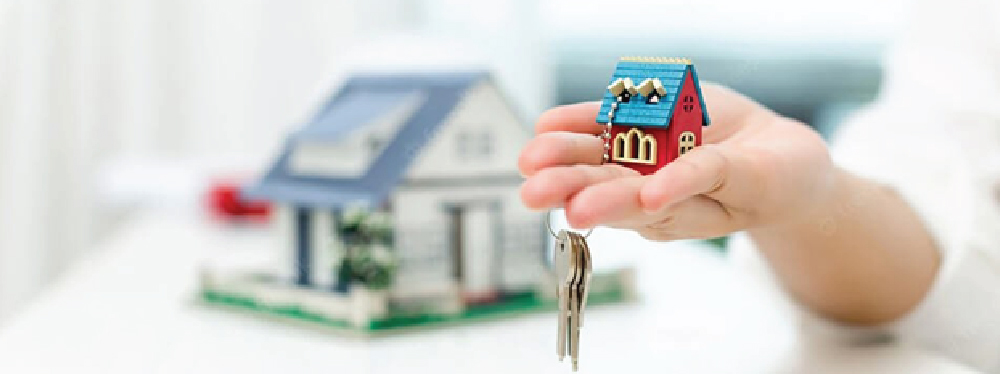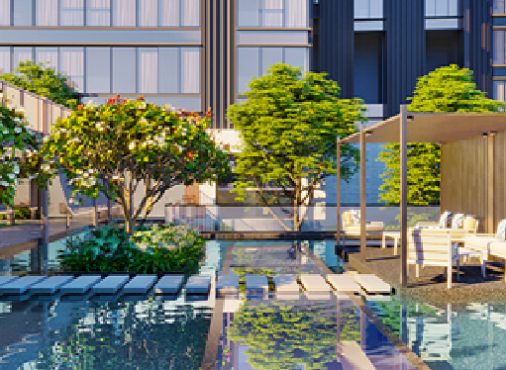Have you ever considered owning a second home? With more high-income individuals jumping on the second home trend, it’s becoming a popular choice. Be it a beautiful city apartment or a cosy beach house, a second home offers more than just a getaway. It can be a smart financial move and a way to enhance your lifestyle.
But like any big decision, it’s essential to know the full picture. There are definite perks, like rental income and property value appreciation, but also challenges, such as upkeep and market risks. Let’s understand what owning a second home could mean for you.
The Pros of Investing in a Second Home
Let’s dive into the benefits and considerations of this investment to gain valuable insights.
Financial Benefits
- Rental Income Potential:
By far, one of the biggest financial benefits of owning a second home is the potential to generate rental income. Renting your property out when you are not using it will provide you with a steady income. Vacation rentals can be considered a lucrative source of earnings, provided the chosen destination is a popular tourist one.
- Property Value Appreciation:
Another benefit of real estate being a good investment is the fact that houses and other properties have always risen in value in the past. An optimal second home will appreciate and provide you with a good ROI if you decide to sell it in the future.
- Tax Advantages of Owning Multiple Properties:
There are multiple tax benefits of owning a second home. For instance, you may be able to deduct mortgage interest, property taxes, and other expenses.
If you have taken a loan to buy a second home that is self-occupied, you can claim a deduction on interest paid on the second loan under Section 24(b) of the Income Tax Act. Up to Rs 2 lakh per financial year is the maximum deduction allowed.
Additionally, if the property is used as a rental, you might be eligible for further tax deductions related to rental income and property management costs.
Lifestyle Enhancements
- Personal Vacations and Family Retreats:
A second home can serve as a personal getaway for vacations and family retreats. It provides a comfortable, familiar place where you can unwind and spend quality time with loved ones without the hassle of booking accommodations.
- Access to Exclusive Locations and Communities:
Owning a second home in an exclusive location gives you access to high-end amenities and communities. Whether it’s a beachfront property, a mountain resort, or a prestigious urban area, these locations often offer unique lifestyle benefits.
- Improved Quality of Life and Work-Life Balance:
A second home helps for a better quality of life and work-life balance. It offers a change of scenery and a break from the routine, which can be rejuvenating and reduce stress.
Investment Diversification
- Spreading Risk Through Real Estate:
If you want to diversify your investment portfolio, then investing in real estate is the best way to do it. Unlike stocks and bonds, real estate is a tangible asset that can provide a hedge against market volatility.
- Building a Tangible Asset Portfolio:
A second home adds to your tangible assets, which can be a more stable and reliable part of your investment portfolio. Tangible assets like real estate are often less susceptible to inflation and market fluctuations compared to other investment types.
Read Also: What Is Loan-to-Value (LTV) Ratio, How It Works & How to Calculate
The Cons of Investing in a Second Home
In this section, we’ll uncover the potential challenges of owning a second home.
Financial Obligations
- Upfront Costs, Mortgages, and Ongoing Expenses:
Investing in a second home involves significant upfront costs, including the down payment and closing costs. Additionally, there are ongoing expenses such as mortgage payments, maintenance, property taxes, and insurance. These costs can add up and strain your finances if not carefully managed.
- Market Volatility and Risk of Loss:
Real estate markets can be volatile, and there’s always the risk that your property could decrease in value. Economic downturns, changes in the local market, or natural disasters can impact your investment negatively.
Management Challenges
- Time and Effort for Property Management:
Managing a second home requires time and effort. This includes regular maintenance, dealing with repairs, and ensuring the property is in good condition. If you rent it out, you’ll also need to handle bookings, tenant issues, and cleaning.
- Tenant Issues and Upkeep:
Renting out your second home can bring additional challenges. Tenant issues, such as late payments, property damage, or disputes, can be stressful and time-consuming. Keeping the property in good condition to attract tenants also requires ongoing effort and investment.
Emotional Factors
- Attachment to Property and Strain During Resale:
Many people develop a strong emotional attachment to their properties, which can make it difficult to sell when the time comes. This attachment can impact your judgment and lead to a change in your financial decisions.
- Impact on Finances and Personal Lifestyle:
Owning a second home can impact your finances and personal lifestyle. The financial burden and management responsibilities can become overwhelming, especially if you encounter unexpected expenses or issues.
Key Considerations Before Investing
Let’s explore the key considerations important to consider before investing the hard-earned money.
Assessing Financial Health
- Evaluating Finances and Investment Goals:
Before investing in a second home, it’s crucial to evaluate your financial health and investment goals. Ensure that you have a solid financial foundation and that this investment aligns with your long-term financial plans.
- Understanding Market Trends in Target Areas:
It is highly recommended to thoroughly research the real estate trends in the area that you want to invest in. Look at property values, rental demand, and future development plans to ensure you’re making a wise investment.
Read Also: The Hidden Costs of Purchasing a Luxury Apartment: What You Need to Know
Location Analysis
- Choosing a Desirable and Appreciating Location:
Location is one of the most critical factors in real estate investment. Choose a location that is desirable and has a history of property value appreciation. Consider factors like local amenities, climate, and accessibility.
- Researching Local Amenities and Future Developments:
Investigate the local amenities and future developments in the area. Good schools, healthcare facilities, shopping centres, and recreational opportunities can enhance the value of your property and its appeal to potential renters.
Long-term vs. Short-term Investments
Determine whether your investment is for the long term or short term. This will influence your buying decision and how you manage the property. Have a clear exit strategy in place, whether it’s selling the property, passing it on to family, or converting it into a primary residence.
Bottom Line
Investing in a second home can be a rewarding endeavour, offering financial benefits, lifestyle enhancements, and investment diversification. However, it’s essential to weigh these advantages against the financial obligations, management challenges, and emotional factors involved.
Thorough research and professional advice are crucial to making an informed decision. By carefully considering your financial health, location, and investment goals, you can make a second home investment that aligns with your needs and aspirations.
Searching for properties to invest in? Rustomjee offers great options across Mumbai. With projects in Bhandup, Dahisar, and Bandra West, there’s something for every budget. Discover more at Rustomjee Residential Properties and fulfil your dream of a second home.
FAQs
- How can I finance a second home?
Financing a second home typically involves securing a second mortgage. It’s important to shop around for the best mortgage rates and terms and ensure that you can comfortably manage the additional financial commitment.
- How do I manage a second home from a distance?
Managing a second home from a distance can be challenging. Consider hiring a property management company to handle maintenance, tenant issues, and other responsibilities. This can save you time and effort and ensure your property is well-maintained.
- Is renting out my second home a good idea?
Renting out your second home can provide additional income, but it also comes with responsibilities and potential challenges, such as tenant issues and property upkeep. Weigh the pros and cons carefully before deciding to rent out your property.






